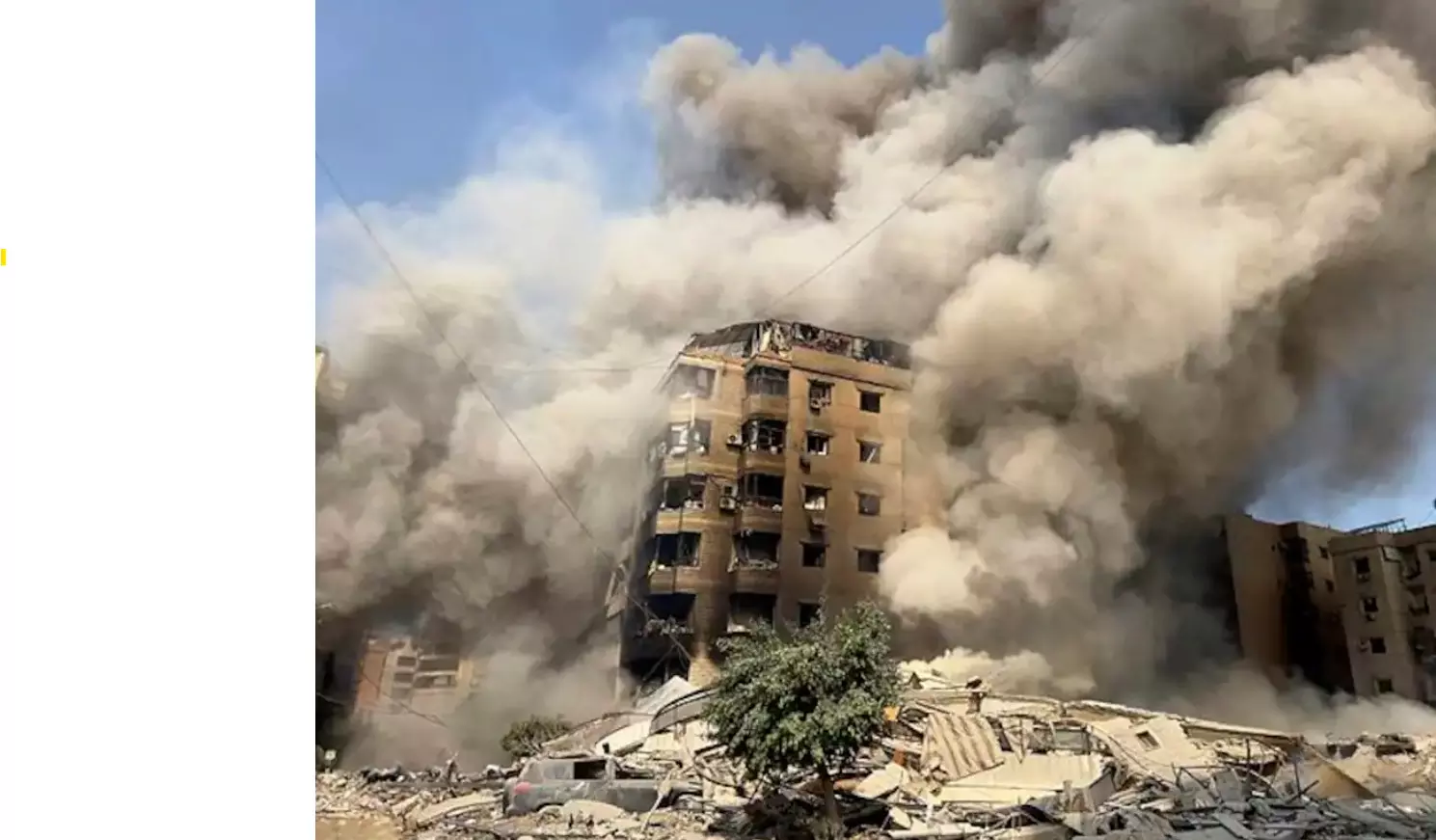Costly adamance

The ongoing escalation of violence between Israel and Hezbollah has brought the Middle East to the brink of a devastating regional conflict. Israeli airstrikes targeting key Hezbollah leaders have killed several of them, including Hassan Nasrallah. Unfortunately, at the same time, civilian casualties are also increasing across Lebanon. The intensification of the cycle of retaliatory violence, if not checked in time, will, in all likelihood, lead to a hard-to-control crisis. Amid all this, diplomatic efforts to broker a ceasefire have yielded very little outcome.
At the crux of the crisis lies the traditionally hostile relationship between Israel and Hezbollah—a group backed by Iran, which is Israel's chief regional adversary. Since its creation by Iran’s Revolutionary Guards in 1982, Hezbollah has transformed from a Lebanese militia into a significant political and military force, playing a central role in shaping Lebanon's domestic and regional politics. Its ongoing militancy and alignment with other anti-Israel factions, such as Hamas, have made it a persistent thorn in Israel’s side, serving as a source of recurrent clashes. It may be noted here that the October 7 (last year) attack by Hamas on Israel, which triggered Israel's military response and drew Hezbollah into the fray, has been an underlying cause of the present escalation. Over the past two weeks, Israeli strikes have decimated much of Hezbollah’s command structure, with high-profile leaders like Nasrallah and Nabil Kaouk counted among the dead. Israel views these targeted assassinations as necessary steps to degrade Hezbollah’s operational capabilities and reduce the threat of continued rocket fire along its northern regions. These actions, however, undoubtedly come at a steep cost.
It is baffling to see that a small but powerful nation in the region is spearheading deadly confrontations—not without triggers—on multiple fronts, while the purveyors of humanitarianism remain mostly silent, if their feeble and uneasy call for ceasefire is discounted. Friends to Israel, particularly the United States, are finding it hard to call out the actions of Israel, which presents an unhopeful scenario. As things stand today, the civilian toll in Lebanon has been nothing short of catastrophic. According to the Lebanese health ministry, over 1,000 people have been killed, with entire families trapped under rubble as airstrikes keep pounding residential areas. The strikes have displaced numerous people, pushing Lebanon—already grappling with political and economic instability—deeper into crisis. The country's fragile infrastructure is being destroyed, and essential services like healthcare are being overburdened, with reports of a significant number of medics being killed in the strikes as well.
Hezbollah, too, has shown no sign of backing down. The group has dramatically escalated its missile and drone attacks on Israeli targets. Thankfully, many of these projectiles are intercepted by Israel's air defence systems. Hezbollah’s attacks may be intended to demonstrate strength, but they also risk pulling Lebanon into a conflict it can ill afford. The United States, France, and other global powers are repeatedly calling for a ceasefire, so that the conflict does not spiral into a full-scale regional war. These overtures, however, have been rejected by Netanyahu, who has vowed to continue military operations until Hezbollah’s threat is neutralised and residents of northern Israel can safely return to their homes. Adamance from both sides will hurt each mutually, and create bigger problems for the world. The so-called influential nations must act as per their capabilities to arrest the crisis. Global peace must stand over narrow geopolitical interests.



